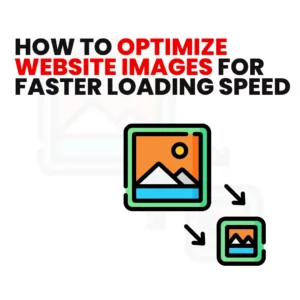Today, when online presence is everything, establishing your brand online is more important than ever. Nigerian small business owners know the importance of standing out in a competitive market. Your website represents your brand, beliefs, and customer service, not just a virtual storefront. Custom website design or ready-made templates are two options for website design. Each path has pros and cons. As you begin your online representation adventure, you must understand both alternatives. This article will walk you through custom web design vs templates, ensuring that your choice matches your business goals.

What is custom web design?
Custom web design is an entirely customized web design project. Your website’s layout, colour design, functionality, and user interface reflect your business’s specific personality and goals. There is no use of pre-existing templates or layouts that don’t fit your concept. Therefore, the chances of finding a website similar to yours online are low.
User experience is carefully crafted to guide users to desired actions, and custom web design offers unmatched flexibility. Your website grows with your business. Since templates do not limit you, new features, functions, and design components can be added without affecting cohesion.
5 benefits of custom web design
Custom web design benefits Nigerian small business owners looking to build a solid online presence. Let’s explore how a personalized website can open doors for your business.
1. Customised user experience
Custom web design is more than just a website—it is an experience tailored to your audience. Understanding your audience’s habits and preferences lets you design intuitive navigation, appealing images, and a flawless conversion path. You can influence how users engage with your site, making it memorable and engaging.
2. Unique brand identity
Standing out is crucial in a sea of websites. Custom web design lets you tell your brand’s narrative. Your brand’s identity and ideals can be carefully picked in every colour, typeface, and graphic aspect. This customization makes a lasting impression and builds audience trust and authenticity.
3. Scalabie and flexible
Custom web design lets you easily adjust to changes. Your website may scale as you add more items, services, or features. Instead of being constrained by templates, you may customize your website to match your business’s growth.
4. Optimized for results
Digital speed and performance are crucial. Custom web design lets you optimize every site element for speed and performance. From code to image compression, every component is tuned to make your website load quickly and deliver a seamless surfing experience, which boosts your expected results.
5. Optimized for SEO
A beautiful website is only effective if it’s found in search results. Custom web design allows for SEO best practices from the start. To optimize search results, optimize meta tags, headlines, and content on your page. This organic visibility can increase relevant site visitors, leading to leads and customers.
Read also: 5 Strategies for Building Trust Through Web Design
Pros and cons of custom web design
The table below shows the pros and cons of using custom web design for your business;
| Pros | Cons |
| Your website reflects your brand’s identity, setting you distinct from the competition | Custom design requires additional money owing to its customization. |
| You can add complicated features and functions to meet your demands | Custom design delays website launch |
| Your website can alter as your business grows | Custom design requires collaboration with designers and developers and technical skills you may not have. |
| Create an intuitive and engaging user interface that matches your audience’s tastes. | The customized design may make upgrades and maintenance more difficult and time-consuming. |
| Custom design lets you express your brand’s values and personality online. | Custom design can present unanticipated obstacles and complexities throughout development. |
What are website templates?
Website templates are pre-designed layouts that enable you to create a beautiful in a short time quickly. You organize content onto a web page that is consistent with the template. To personalize the template and make it your own, you can drag and drop objects, such as image blocks, texts, videos, etc. Website templates will help you launch your business online quickly. Website templates provide a framework for your website that can be customized to match your brand and content.
7 benefits of website templates
Website templates (also called themes) can help you build a professional and effective website without the hassle of beginning from scratch. Below are some benefits of using templates to build your website.
1. Design versatility
Imagine browsing a variety of website templates with different layouts, colour schemes, and designs for different industries and purposes. These templates cover various company demands, so you may pick one that matches your brand. Whether you’re a local boutique or tech company, a template may fit your goal.
2. Easy to set up
One of the benefits of website templates is their quick setup. You don’t start from scratch using a template; the structure is already there. This means you can launch your website faster than with a bespoke design. This efficiency can change the game when the time to market is crucial.
3. User-friendly customization
Templates are user-friendly, so choose one and customize it. You may quickly change photos, text, and colours to fit your brand’s personality. Drag-and-drop capability in many templates lets you arrange information and features without technical expertise.
4. Affordable
Budget is crucial for small business owners. Website templates are cheaper than custom designs. You can buy professionally designed layouts without employing a designer. This affordability can free up resources for other corporate priorities.
5. Time efficient
Imagine the delight of launching your website in days rather than weeks. Website templates speed up design and development. Pre-designed layouts and frameworks can speed up the launch of your web platform, letting you focus on other business matters. This lets you obtain audience comments and insights sooner, improving your online strategy and user experience.
6. Continuous support and updates
Website template vendors usually offer continuous help if you have a technical issue. Security, bug patches, and technology compatibility updates are common for these templates. This means you can update and safeguard your website without technological expertise.
7. Loads of options
Imagine exploring a variety of designs with different styles, niches, and features. Restaurants, photographers, and consultants can use templates specific to their industry. This variety lets you choose a design that matches your business’s individuality.
7 common issues with website templates
Knowing the limitations of website templates is crucial as you explore this simple and affordable option. Templates have many benefits but may limit your ability to establish a distinctive and personalized online presence.
- Imagine choosing a visually beautiful template, but many other businesses may utilize it. This lack of individuality might dilute your brand, making it tough to stand out online.
- Many templates offer customization possibilities. However, some crucial changes may require bespoke coding, which may need technical expertise.
- While templates enable some customization, you may struggle to obtain the appearance and feel you want. This may make your website look generic and less like your brand.
- You may have trouble changing the template to additional features and functions as your products broaden and your target audience grows.
- Templates may be slow and inefficient, and fixing them may require editing the template’s code, which can be intimidating for non-technical people.
- Clean coding, correct header hierarchy, and optimized image sizes may be absent, impacting your site’s search engine rankings.
- Updates may cause compatibility issues and require time-consuming manual modifications.
Custom web design vs templates – factors affecting choice
Consider various things when choosing between bespoke web design and website templates for your business. Each element influences the optimal approach for your business’s goals and resources. Let’s discuss these key factors to help you decide.
1. Type of the business or project
Consider your business or project: a local barber shop, e-commerce store, or professional service provider. Different businesses and sectors have different needs. For instance, a template may help an artist exhibit their portfolio. Custom design may be better for IT startups with complicated services to communicate their value proposition.
2. Budget considerations
Your budget is crucial for decision-making. Website templates save money for initial investment. Custom site design costs more because it’s customized. Assess your budget and decide how much to spend online.
3. Website development timeline
Determine if you want a speedy launch or prefer a custom design process. Templates are great for organizations that require an online presence quickly. The custom design provides for careful planning and implementation if you have time.
4. Long-term goals and scalability
Are you growing your business quickly or slowly? Companies that seek a simple online presence without immediate expansion should use website templates. The custom design lets you scale your website if you expect your offers, markets, or locations to change.
5. Design and technical skills
Does your team have in-house designers and developers, or do you outsource? Templates are easier for non-technical people to use. However, unique site design requires expertise to realize your concept.
Read also: 10 Tips to Optimize Your Website Load Speed
Differences between custom web design and templates
The table below shows the differences between custom web design and templates based on several factors;
| Factor | Custom web design | Templates |
| Uniqueness | Allows you to construct a website that uniquely represents your brand. | Offer pre-designed structures that other companies may utilize, reducing uniqueness. |
| Personalization | It lets you customize every part of your website for content, functionality, and aesthetics. | Allow customization but confine you to the template’s style and functionality. |
| Timing and cost | Due to its customization, custom design takes more time and resources. | They are quick to set up and cost-effective, making them ideal for firms with limited resources. |
| Complexity and features | Perfect for enterprises with complex needs, it integrates complex features and functions. | Build-in functionality, however, sophisticated needs may limit flexibility. |
| Scalability | It lets you scale and customize your website as your business grows. | It may not accommodate significant growth and adjustments. |
| Technical skills | Usually involves designers and developers. | Allow business owners to customize without technical expertise. |
Conclusion
Your online presence should reflect your brand’s values. Custom site design or templates? Make an informed decision that boosts your brand. Custom site design allows you unmatched creativity and distinctiveness. Your website becomes a work of art that expresses your brand’s personality, touching your audience. However, website templates offer efficiency and structure to help you develop your presence quickly and affordably.
As a professional website designer in Lagos, I want to help you decide. Whether you want personalized quality or efficiency, I’ll work with you to adapt solutions to your goals.



